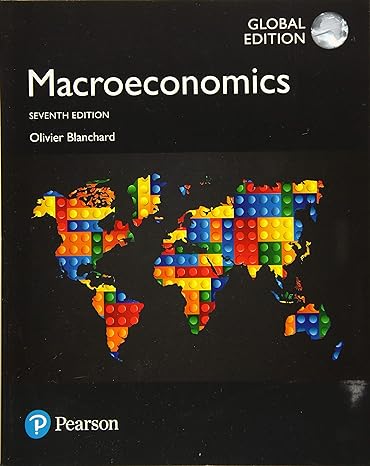The balanced budget multiplier For both political and macroeconomic reasons, governments are often reluctant to run budget
Question:
The balanced budget multiplier For both political and macroeconomic reasons, governments are often reluctant to run budget deficits. Here, we examine whether policy changes in \(G\) and \(T\) that maintain a balanced budget are macroeconomically neutral. Put another way, we examine whether it is possible to affect output through changes in \(G\) and \(T\) so that the government budget remains balanced.
Start from equation (3.8).
Equation 3.8
![]()
a. By how much does \(Y\) increase when \(G\) increases by one unit?
b. By how much does \(Y\) decrease when \(T\) increases by one unit?
c. Why are your answers to parts and \(b\) different?
Suppose that the economy starts with a balanced budget: \(G=T\). If the increase in \(G\) is equal to the increase in \(T\), then the budget remains in balance. Let us now compute the balanced budget multiplier.
d. Suppose that \(G\) and \(T\) increase by one unit each. Using your answers to parts and \(b\) what is the change in equilibrium GDP? Are balanced budget changes in \(G\) and \(T\) macroeconomically neutral?
e. How does the specific value of the propensity to consume affect your answer to part a? Why?
Step by Step Answer:






